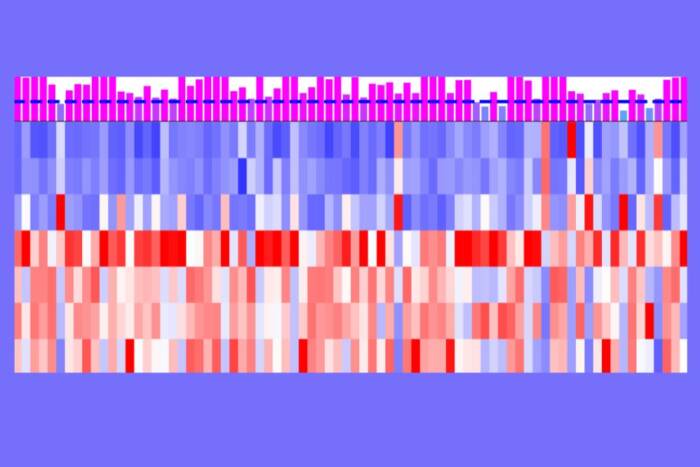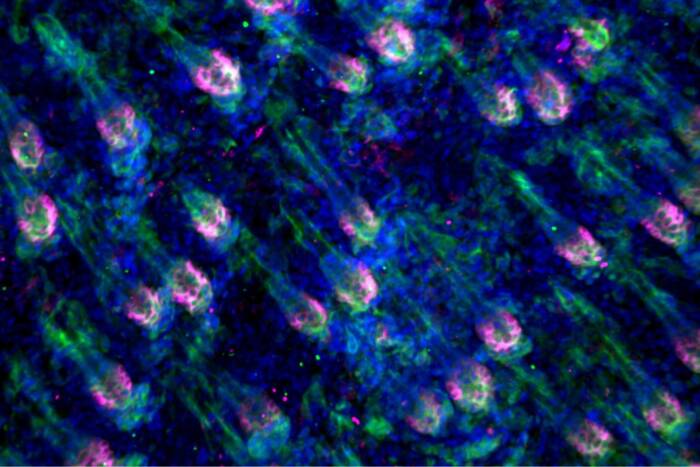Nobel laureate and longtime faculty member Gerald Edelman dies at 84
by LESLIE CHURCH
Gerald M. Edelman, a Rockefeller alumnus, former faculty member and Nobel laureate who uncovered the chemical structure of the antibody in 1961, died on May 18 at the age of 84.
 (opens in new window)A graduate of Henry Kunkel’s laboratory and a member of the university’s second graduating class, Dr. Edelman received his Ph.D. in 1960 and remained at Rockefeller for 34 years, becoming Vincent Astor Professor. He also served as assistant and then associate dean of graduate studies.
(opens in new window)A graduate of Henry Kunkel’s laboratory and a member of the university’s second graduating class, Dr. Edelman received his Ph.D. in 1960 and remained at Rockefeller for 34 years, becoming Vincent Astor Professor. He also served as assistant and then associate dean of graduate studies.
He left the university in 1992 to become director of The Neurosciences Institute in San Diego and president of the institute’s publicly supported nonprofit parent organization, the Neurosciences Research Foundation. He was also professor and chairman of the department of neurobiology at The Scripps Research Institute.
“Dr. Edelman left an indelible mark on the university,” says Marc Tessier-Lavigne, the university’s president. “He sparked scientific progress in numerous fields — biophysics, protein chemistry, immunology, cell biology and neurobiology. Just as importantly, he also helped shape Rockefeller’s graduate program and served as mentor to dozens of young scientists.”
Dr. Edelman was born in New York City on July 1, 1929. At first embarking on a career as a professional violinist, he changed course to pursue science, earning a bachelor’s degree at Ursinus College in 1950 and his M.D. at the University of Pennsylvania in 1954. He spent a year at the Johnson Foundation of Medical Physics, and, after a medical house officership at the Massachusetts General Hospital, he served as a captain in the Army Medical Corps attached to the American Hospital in Neuilly-sur-Seine, France.
Dr. Edelman began his research career with an interest in the immune system. By severing the sulphide bonds that hold together immunoglobulin G, he showed that this antibody was made of more than 1,300 amino acids in four chains. It’s these chains that create a pocket capable of capturing an antigen, which triggers an immune response. These studies led to his receiving the 1972 Nobel Prize in Physiology or Medicine, which he shared with Rodney R. Porter. As a result of Dr. Edelman’s work, mammalian antibodies were classified and harnessed for use in the diagnosis of infectious diseases.
Turning his attention to developmental processes in the 1970s, Dr. Edelman made important discoveries on cell adhesion molecules and their roles in the development of an animal’s shape as well as its nervous system. He then focused on neurobiology, specifically brain function and human consciousness, and in recent years became a leading figure in the emerging field of synthetic neural modeling.
Dr. Edelman was one of three alumni to be presented with an honorary degree at the university’s 2008 convocation, which recognized the graduate program’s 50th anniversary. He used his speech to convey the importance of one particular component of the scientific endeavor: “Science is imagination in the service of verifiable truth…. And in fact, there are some times when imagination leads to a world change.”
Dr. Edelman is survived by his wife, Maxine Morrison, sons Eric and David and daughter Judith.


